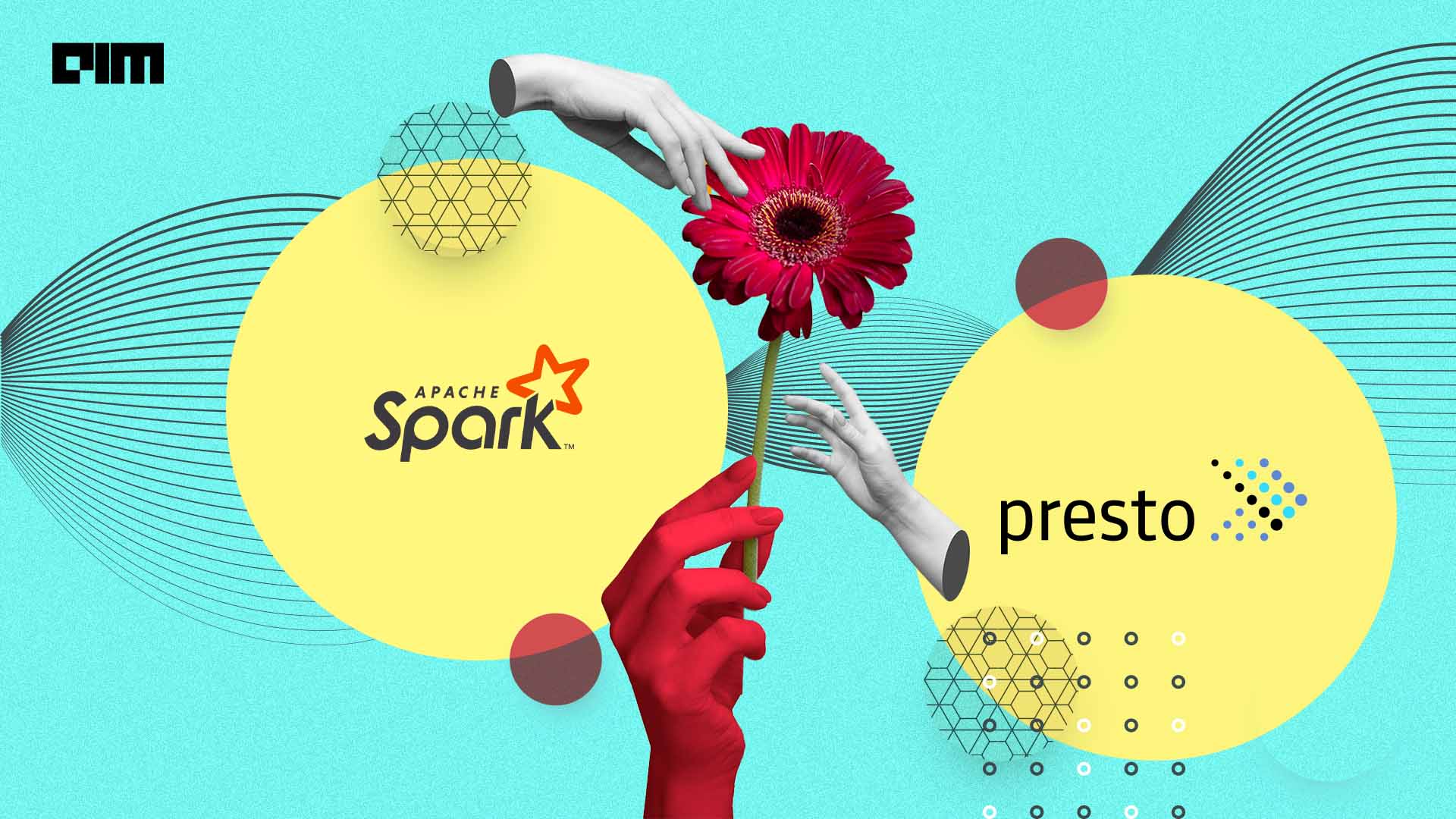|
Listen to this story
|
The big data marketplace is growing rapidly, leading to intense competition. Open-source technologies like Presto, Hadoop, and Spark, are prominent players in this field that provide innovative solutions and differentiate themselves from competitors.
Apache Spark and Presto are powerful open-source analytics engines designed to handle unstructured and semi-structured data across various applications. They provide a straightforward and expressive programming model, accommodating use cases such as machine learning and stream processing. Spark and Presto excel in executing interactive queries on datasets of any size and seamlessly combining data from multiple sources, making them ideal for querying data lakes that store structured and unstructured data like images, videos, and social media posts.
These frameworks operate efficiently with distributed, parallel, and in-memory processing, enabling fast data processing. Renowned companies have extensively tested and implemented Spark and Presto for handling massive volumes of data. These frameworks offer flexibility, supporting on-premises or cloud deployment, with containerization enabling adaptable and scalable deployments.
Although both of them have similar offerings, they come with their own share of differences.
Read more: India’s Semiconductor Dreams Plunge into Chaos and Uncertainty
Apache Spark vs Presto
Processing Model
Spark is a powerful framework for big data processing, supporting batch processing and iterative computations. It leverages Resilient Distributed Datasets (RDDs) for distributed data processing, offering APIs for tasks such as batch processing, SQL queries, machine learning, and graph processing. In contrast, Presto focuses on interactive and ad-hoc querying. It employs a distributed SQL query engine model, aiming to deliver quick query responses through distributed query optimisation and execution.
Data Processing Paradigm
Spark is an in-memory processing framework that enhances performance for iterative computations and repetitive data access by caching intermediate data in memory. It offers options to store data on disk or in distributed file systems like HDFS.
Presto streams data directly from sources, bypassing memory storage. It employs a pipelined execution approach that reduces data shuffling and optimizes memory utilization, enabling efficient processing of massive datasets.
Query Optimisation
Spark and Presto have powerful query optimisers. While Spark focuses on optimising RDD-based transformations and SQL queries, Presto’s optimiser is highly advanced. It generates efficient execution plans by considering factors such as statistics, data distribution, and data partitioning. Moreover, Presto performs dynamic optimisation during query execution, enabling it to adapt to evolving data and query patterns.
Read more: Will Meteor Lake Be Intel’s Saving Grace?
Data Sources and Connectors
Spark and Presto offer diverse connectivity to data sources like HDFS, Hive, relational databases, and cloud storage. Spark boasts a vast ecosystem, including support for HDFS, Hive, HBase, databases, and cloud storage services such as Amazon S3 and Azure Blob Storage. While Presto’s connector ecosystem may not match Spark’s breadth, it still enables connectivity with HDFS, Hive, databases, cloud storage, and more.
Scalability
Spark and Presto are both scalable frameworks for distributed data processing. They distribute data and computations across machine clusters, enabling parallel processing and efficient resource utilisation. They can handle large-scale workloads and support horizontal scaling by adding more worker nodes.
Why Big Techs Love Spark
Big companies are adopting Apache Spark for various reasons. Yahoo, for example, uses Spark to enhance its web search engine by providing personalised content to visitors based on their individual interests. Spark’s real-time processing capabilities and high-speed performance enable Yahoo to cater precisely to each user’s preferences. In the finance industry, banks are turning to Spark as an alternative to Hadoop for accessing and analysing diverse data such as social media profiles, call recordings, and emails. This empowers them to make informed decisions regarding targeted advertising, customer segmentation, and credit risk assessment.
Spark excels in iterative computations and comprehensive data processing, while Presto is optimized for interactive queries and ad-hoc analysis. When choosing between Spark and Presto, it is crucial to consider the specific requirements, workload patterns, and data characteristics of the given use case to make an informed decision.
Read more: Beware of the AI Bubble Burst










































































